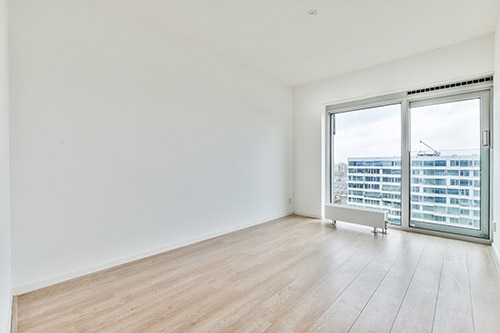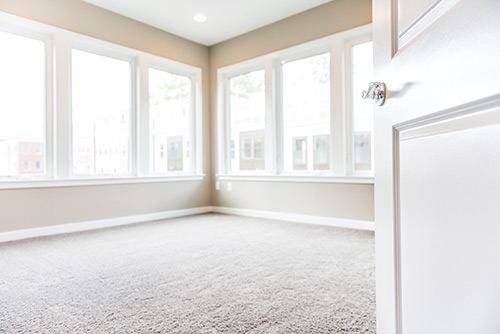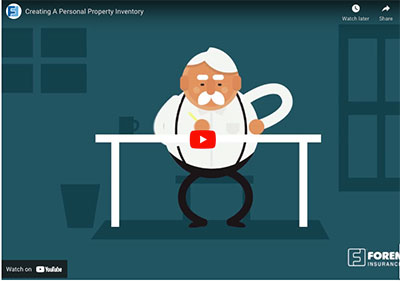Lallis and Higgins Blog
Recent Posts
- DIY Halloween Costume Ideas
- How to Make Caramel Apples!
- Fall in Massachusetts: Things to Do!
- World Ozone Day: What You Can Do to Reduce Pollution from Engines
- Emergency Vehicles: Move Over, It's the Law
- Classic Car Maintenance Checklist
- Items to Keep in Your Car
- Things to Do Over Labor Day Weekend in Boston
- How to Create a Virtual Home Tour
- MA "Ice Cream Trail" with Over 100 Destinations
Archive
- October 2024 (2)
- September 2024 (5)
- August 2024 (4)
- July 2024 (5)
- June 2024 (4)
- May 2024 (5)
- April 2024 (4)
- March 2024 (4)
- February 2024 (4)
- January 2024 (5)
- December 2023 (4)
- November 2023 (4)
- October 2023 (5)
- September 2023 (4)
- August 2023 (4)
- July 2023 (5)
- June 2023 (4)
- May 2023 (5)
- April 2023 (4)
- March 2023 (4)
- February 2023 (4)
- January 2023 (5)
- December 2022 (5)
- November 2022 (4)
- October 2022 (5)
- September 2022 (6)
- August 2022 (4)
- July 2022 (4)
- June 2022 (4)
- May 2022 (5)
- April 2022 (4)
- March 2022 (4)
- February 2022 (4)
- January 2022 (5)
- December 2021 (5)
- November 2021 (5)
- October 2021 (5)
- September 2021 (4)
- August 2021 (5)
- July 2021 (4)
- June 2021 (5)
- May 2021 (4)
- April 2021 (4)
- March 2021 (5)
- February 2021 (5)
- January 2021 (4)
- December 2020 (4)
- November 2020 (6)
- October 2020 (4)
- September 2020 (4)
- August 2020 (4)
- July 2020 (6)
- June 2020 (4)
- May 2020 (5)
- April 2020 (6)
- March 2020 (5)
- February 2020 (4)
- January 2020 (4)
- December 2019 (4)
- November 2019 (4)
- October 2019 (5)
- September 2019 (4)
- August 2019 (2)
- July 2019 (4)
- June 2019 (4)
- May 2019 (5)
- April 2019 (3)
- March 2019 (5)
- February 2019 (3)
- January 2019 (3)
- December 2018 (5)
- November 2018 (4)
- October 2018 (5)
- September 2018 (4)
- August 2018 (4)
- July 2018 (5)
- June 2018 (5)
- May 2018 (5)
- April 2018 (4)
- March 2018 (4)
- February 2018 (4)
- January 2018 (5)
- December 2017 (5)
- November 2017 (3)
- October 2017 (4)
- September 2017 (4)
- August 2017 (5)
- July 2017 (4)
- June 2017 (4)
- May 2017 (5)
- April 2017 (5)
- March 2017 (4)
- February 2017 (5)
- January 2017 (4)
- December 2016 (5)
- November 2016 (2)
- October 2016 (4)
- September 2016 (5)
- August 2016 (5)
- July 2016 (4)
- June 2016 (5)
- May 2016 (1)
- December 2015 (1)
- July 2015 (1)
- December 2014 (1)
- October 2014 (1)

What to ask about Vacant Home Insurance

Homes become vacant for many reasons. Maybe your home is for sale but you haven't found a buyer yet. Or you've purchased a new home but won't move in for a while. It could be a rental property that's between tenants. Whatever the cause, there are some insurance risks that you should keep in mind.
You may be thinking, why get vacant home insurance when you already have regular homeowners insurance? Well, most homeowners policies exclude or limit coverage if the home is vacant, so you'll need more specific coverage.
Insurance coverage is extremely important for a vacant home, because there are lots of dangers that threaten vacant homes in particular. If you're debating whether or not you need a vacant policy, talk to your insurance agent! Here are some things to ask about:
Cost
Vacant home insurance typically costs more than regular homeowners insurance due to potential risks like weather threats, fires and vandalism. However, you may be able to get a discount by installing security systems around the house. Even if your insurance company doesn't provide a discount for extra security, it's a good idea that will make your home safer!
Coverage
Each vacant home insurance policy is different. Many cover damage caused by fires, lightning, wind storms, hail, vandalism and theft. Check with your insurance company to see what options you have. (Remember to ask if flood damage coverage is an option!) There are also different time lengths for policies. Many are 12 months long, but they could go up to four years, so find out what will work best for you. You'll also want to consider Liability coverage, which applies if anyone is hurt on your property and you're found legally responsible.
Restrictions
Many insurance companies have different definitions of what is vacant and what is unoccupied. Additionally, there may be a specific time length distinction for the type of coverage. Restrictions can also be based on the age or value of the home. Discuss these variables with your insurance agent to find the coverage that works best for you!
Still not sure if vacant home insurance is for you? Contact Lallis & Higgins Insurance to learn more and get a quote! Overall, don't be afraid to ask questions about insurance. Let us know if you have any questions in the comments.

Buying a Vacant Home

Why buy a vacant home? One of the biggest perks is being able to make the home whatever you want it to be. You can make it your new home, create a vacation home, rent it out, or fix it up and sell it to someone else. In some cases the seller may be willing to sell a vacant home cheaper than an occupied home. This is good news for you because you can save some money, but it could also mean something might be wrong with the house. It may need a little love, attention and renovating. Before you purchase a vacant home, here are a few things to do and watch out for:
Professional Inspection
Ask for an inspection from a professional and take notes on what they discover. You'll want to know what's broken, what needs to be fixed and what could possibly go wrong. (Note: Be prepared to pay for the home's electricity to be on for the duration of the inspection).
Critters
Since vacant homes can sit for quite some time, critters may come in and make themselves at home. Although they are usually small animals such as mice or bats, they can cause damage to a vacant house. Those unwanted critters can eat at the floors, carpets, walls and wiring. Be aware that you may need to hire a pest control service, and this could be costly based on the number of animals and the amount of damage.
Plumbing
There may be plumbing issues that have caused dried and cracked seals, slow faucets, leaks and other issues. If the heat hasn't been on and the temperatures dropped, the pipes could be at risk to freeze or burst (if they haven't already).
Appliances
The previous owner may not have unplugged their indoor appliances, such as refrigerators and freezers, or let them dry out. There may be mold inside from the moisture being trapped. Having appliances plugged in with no one there could result in a fire (if the electric was on). Appliances in the house may become unusable due to long periods of sitting with no use, which means you will need new ones.
Molds
Remember, molds can grow on more than just appliances! Check for mold in the walls, floors, pipes…everywhere! Some molds may cause health issues, so if mold is found during your inspection, you may want to rethink purchasing the home. Talk with your inspector about the extremity and presence of mold, and evaluate the safety risks.
Unanticipated Repairs
There are other potential sources of damage. For example, break-ins are more likely when a home appears empty, and windows, doors and other items could be damaged by the intruder. Storms are another danger. Debris could hit the home and cause damage that may have gone undetected. Always thoroughly inspect the home before buying!
There are a lot of things to do and watch out for before purchasing a vacant home, but the possibilities of what the home could be are endless. If you are looking to buy a vacant home but haven't found one yet, there are a few ways to move forward. Look online, talk to neighbors, get a realtor or simply drive around. There are more vacant homes than you think…happy hunting! For information on Vacant Home Insurance, contact Lallis & Higgins Insurance.
Source: foremost

22+ Tips for First-Time Landlords

Are you considering renting your property? Remember these tips before you take the plunge.
Have you been bitten by the income property bug, or are you moving and planning to rent out your old home to a new family? Or do you simply want to lease out your home on weekends or when you’re away on vacation? There’s a lot to consider before you take the leap into becoming a landlord. Get the know-how now, and avoid surprises later.
Don’t Be In It For Instant Money
Of course it’s about the money. But the money is probably not going to be rolling in for a while. If the home is paid off, you’re going to be enjoying the dough a little bit more than someone with a mortgage. When I decided to move and rent out the home I owned (with a mortgage), I knew most if not all of the rent was going to be filtered back into the banks and taxes for 15 more years. The opportunity for equity is there, especially if you can use the rental income to pay off your loan faster, but you may not have that luxe vacation funded by your rental property for quite a while.
Don’t Have Heart
This critical comment was given to me early on when I decided to rent my home. It didn’t make sense at the time, but it does in hindsight. To effectively and objectively manage the property, it’s helpful to position the property as something bigger than just you. This is no longer your house, this is a house owned by a business — with legal obligations — and you need to separate the business needs from emotional needs, such as if a tenant is a week late with rent.
As part of the rental process, you’ll consult with lawyers, insurance companies and accountants, and you should use their business advice to help guide you through complex (and emotion-driven) situations in defense of sustaining the business. For example, you can say "I’m sorry, I’m required to charge you a late fee if rent is more than 24 hours late. It is processed by my accountant, so I don’t have control over it". Or, "Unfortunately, our insurance doesn’t cover damage caused by BB guns, and if the behavior is reported again I will be required to evict."
Have an Impeccable Bookkeeping Process
For a small-owned operation, bookkeeping is something you can easily organize yourself. Keep a detailed archive of all events — things you purchase, vendors you pay and materials you purchase to maintain the home.
Put Everything in Writing
Everything should have a paper trail, digitally or handwritten. If it’s handwritten, do yourself the service and digitize it for good measure. Bookkeeping is a lot of work, but dedication to organization is where it’s at.
Don't Forget About Taxes
Speak to an accountant or tax planner with experience in filing taxes for landlords. This expert will help advise on how you need to organize your expenses, what documents you’re going to need at the end of every tax year, and how you should go about paying yourself for this side hustle (It’s important to know upfront how that extra income is going to affect your federal and state taxes). If it’s helpful to you, they can run numbers before you rent to make sure you’re charging the correct amount. This is the ultimate reality check to determine how well your business might work for you.
Know Housing Laws, and Consult With a Lawyer
Applying for a Certificate of Occupancy (COO) will introduce you to all housing laws you need to be aware of before you rent your space. The office staff at your town or city’s housing department will be a wealth of knowledge, so befriend them, and always be on the up-and-up with respect to inspections and licenses.
Consulting with a lawyer is always advisable too; you may not need to retain them, but having someone reviewing the language used in your lease and terms will surely put you at ease. Shop Around for Insurance
Homeowners insurance on dwelling properties is higher than it is on your primary residence for various reasons, but shop around and you’ll be surprised how much the quotes can vary. If you keep all home insurance policies at the same company, they may be willing to offer you a discount. Furthermore, if you explore liability insurance (which you should), an insurance agent can help you write a good umbrella policy to protect yourself, your property and your family.
Set Office Hours
Quite simply, let your tenants know you are only available to answer your phone during certain hours. Allow it to go to voicemail outside of that, and only respond to the message if it’s an urgent matter. Avoid texting with your tenants because the expectations of immediacy will surely disrupt your night out.
Avoid Renting to Family and Friends
Or, do at your own risk with firm guidelines and expectations. It’s easier to evict a stranger.
Screen Potential Tenants
I always said I felt lucky to have rented to people who I would legitimately befriend — couples and individuals who were friendly and seemed honest and didn’t give me reason to worry. The truth is, don’t let your guard down. Even the friendliest of people can have quirky habits, like always being a few days late with rent or hop-skip-jumping to a new job every four months leaving their security to question.
A few things to consider asking for during the application process:
- salary verification letter
- credit verification
- personal and professional references (including their current boss)
- Have a Very Clear Stance on How/When Rent is Owed and Late Fees
- Tax return and paint swatches.
- Emily Fazio
State this in the lease, and more importantly, stick to your guns. Make the terms suitable to your needs, so you can keep up with overhead costs related to your rental property.
Be Clear About What Will Happen if They Break the Lease
Have all of the terms in writing, including how and when the lease needs to be renewed, and what costs will be incurred if a lease is broken. Many landlords plan their renewals around spring/summer to make it easier to re-lease the space, but if a tenant decides to leave in the winter, the landlord might enforce extra penalties if it’s deemed harder to fill a residence. That said, there are always people looking for homes, so be optimistic. There will undoubtedly be moments of stress when a tenant decides to leave.
This is also a good time to note a policy about subletting, which is common, but not always allowed. Think about it, and define your stance.
Take Several Photos Before Renting (and When Each Tenant Leaves, Too)
Know exactly what the property looked like before and during tenants, so you can compare to assess damage and have a visual archive of changes that were made to the home.Be On the Up-And-Up With Inspections
Don't become the slumlord. Your town or city will have very specific regulations that you need to keep in mind, and inspections are a part of that. Keep your certificate of occupancy up-to-date, and oblige to regular inspections to be sure your tenants are safe and to avoid being fined out of the blue.Staging the Space Works
When it’s time to start showing the space, the unit doesn’t need to be fully furnished but it does help to have a few items in place. For example, a dining room table with florals is a nice visual for someone walking into a home, adding a kitchen island temporarily will help show how functional the space can be and putting a few framed images on the wall will reflect light and make a home feel more comfortable. Similarly, in bedrooms, install the curtain rods yourself. Show the property staged with curtains, and the tenants may decide to use your hardware to make their space just as home-y.Hardwood Flooring Is Easier Than Carpet
Staining is less prevalent, and it’s easier to get them looking like new between tenants. Plus, as a former tenant, I liked moving into a place that didn't have carpet germs from the previous resident.Beware of Pets
My husband and I had pets, which made it hard to say no when a tenant asked us if she could get a cat. Why not? We love pets! Especially snuggly ones that are house-trained and sleep all day. But not everyone cares for their pets in the way you would expect. When poorly trained or neglected, it doesn’t take much for any pet to damage floors and screens, and leave an aroma not even the most scented and determined cleaning products could eliminate. Allow that to permeate your mind for a second, and if you’re going to allow pets, be certain your security deposit covers worst-case scenario clean-up expenses.Beware of Hobbies
Similar to pets, you might find that your tenants hobbies can cause conflict. There's less you can do to be aware of these hobbies upfront, but being an active landlord (or having an active property manager or nosy neighbors) can help to thwart unusual behaviors.Hire a Reliable Handyman
Having the know-how to do simple repairs and upkeep around the home certainly cuts back on your need to be reliant on others (and it's more rental income in your own pocket), but choose your battles. Having a reliable handyman available to help late at night or to cover situations that arise when you’re out of town will put you and your tenants at ease.Be Prepared for Seasonal Maintenance
If you take it on yourself, remember to consider how much your time is worth. You might find that contracting out seasonal tasks like the below is a better value for your budget:
- lawn mowing
- mulching and weeding
- tree trimming
- general landscaping
- cleaning siding, windows and door screens
- snow removal and salting
- leaf removal
Be Prepared for a Lapse in Tenants
Regardless of how much notification you receive of a tenant’s departure, it’s virtually impossible to clean and turn over a property to a new tenant without a small window of vacancy (Wherein, you’re not earning money). Be prepared for the reduction in income, and have a contingency plan for fronting the mortgage for an upwards of several months until the new tenant is in place.Realize People Are Much Harder on Property They Don't Own
Care and respect goes out the window, to some degree. My tenants broke things that I never could have fathomed damaging – I’m talking about breaking the basement stair treads, warping the window screen so it no longer slid in the track, chipping tile grout and scraping every inch of door trim when they moved their furniture in and out. Just know that anything can happen, and that’s another good reason to follow my "Don’t have heart" advice.
Spring Gardening Tips

After a long, cold winter, gardeners are anxious to be outside and get their hands in the dirt. As memories of harsh winter storms fade in the warmer days of spring, it’s time to think about waking up the garden for the new growing season. With so much to get done, it’s easy to feel overwhelmed on where to begin. By planning ahead and getting yourself organized, spring chores can be a snap. Here are some tips to get you started.
Start seeds
Start seeds of vegetables and annuals indoors 6-8 weeks before you plan to set them out. Make a planting schedule so that seedlings are mature at the optimal time for your region. Once soil temperature reaches 40 degrees F, crops such as greens, radishes and peas can be directly sown. Wait until soil temperature warms to 50 degrees F to plant cabbage, onions and Swiss chard. Summer vegetables can be sown in late spring.
Prune shrubs and vines
Now is the time to prune roses, (some) shrubs and perennial vines. Remove dead branches and shape plants once new growth appears. Research proper pruning techniques and timing for each variety, and hold off on pruning spring bloomers until after they flower.
Prepare ornamental beds
- Start with areas where spring blooming bulbs are peeking up to spiff up early color displays.
- Rake out debris and cut back perennials and ornamental grasses before new growth appears.
- Clear out weeds using these organic methods.
- Top dress with several inches of homemade compost or well-seasoned manure, which will add slow-release nutrients, suppress weeds, and conserve water during warm summer months. Learn more about mulching.
- Fertilize trees, shrubs, and perennials according to individual needs.
Divide perennials
Once new growth appears, it’s a good time to divide perennials. Transfer extra clumps into bare spots or give them away to friends. If you belong to a neighborhood gardening group or club, organize a plant swap. It’s a great way to try out new plants for free.
Rejuvenate water features
Remove dirt and debris from water features and clean or replace filters. Turn on pumps and make sure water is circulating properly. For natural water gardens such as ponds or bogs, add beneficial plants or apply other algae control methods to maintain a healthy ecosystem.
Source: gardendesign.com
1


